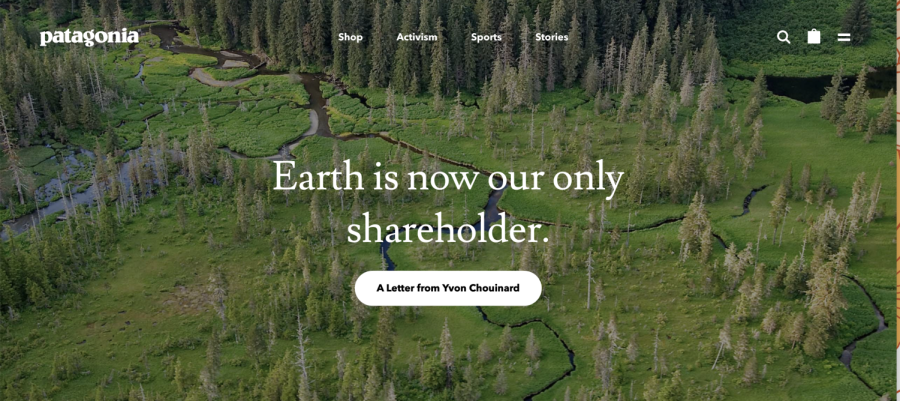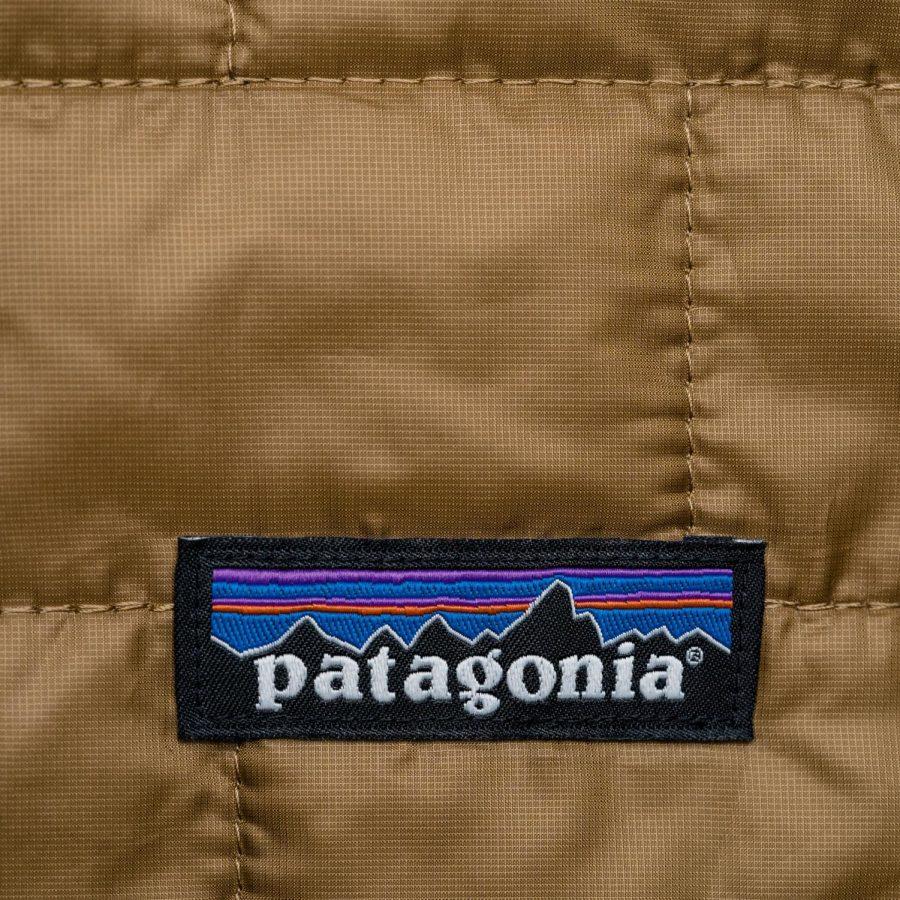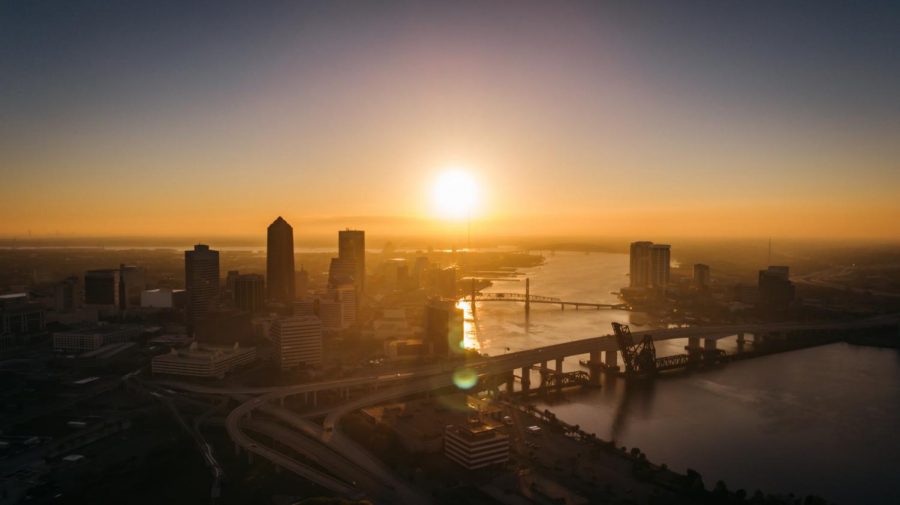Outdoor retailer Patagonia has always been in the business of saving the Earth and is now directing all profits to combat climate change and protect undeveloped land around the globe.
Founded in 1973 by Yvon Chouinard, Patagonia has become a $3 billion company with average profits of $100 million a year. Through his love and dedication to the planet, Mr. Chouinard and his family decided to transfer their ownership of the company to a specifically designed trust and nonprofit organization.
“Here’s how it works: 100% of the company’s voting stock transfers to the Patagonia Purpose Trust, created to protect the company’s values; and 100% of the nonvoting stock had been given to the Holdfast Collective, a nonprofit dedicated to fighting the environmental crisis and defending nature,” Chouinard wrote on Patagonia’s website.

Bart Welling, an associate professor of English at the University of North Florida, explained that by acknowledging climate change, one also acknowledges their responsibility for it. He referenced the book This Changes Everything by Naomi Klein, which he said makes a compelling point about how humans see the world.
“If you acknowledge that the climate crisis is real and it is caused by burning fossil fuels, then you’re basically acknowledging that your whole worldview is flawed” he said. “It’s hard to acknowledge when you’ve been wrong.”
He also gave an acronym he uses to describe the climate crisis that can also explain how people perceive the issue. “BEAST: Big Energy Associated Scary Thing.” He said that people tend to view climate change as some big monster that they hope will go away by hiding under a blanket.
“It’s not going away,” Welling said. “The more you deny it, the stronger it gets.”
Patagonia’s effort to fight the climate crisis isn’t a new one. The company began using materials for their apparel that cause less harm to the environment and gave away 1% of sales each year. In 2018, they changed the company’s purpose too. “We’re in business to save our home planet,” Patagonia wrote.
But that wasn’t enough for Chouinard and his company. In his letter on the company’s website, he explained that they needed to find a way to put more money into fighting the crisis while keeping the company’s values intact. After exploring options like selling the company and donating the money or taking the company public, they concluded both options were not viable if they wanted to keep the honest values instilled in the company.
“Instead of extracting value from nature and transforming it into wealth for investors, we’ll use the wealth Patagonia creates to protect the source of all wealth,” Chouinard wrote.
Professor Welling explained that every place on the planet is being affected, although some more than others. Heat waves, droughts, floods, famine and wildfires are just a few of the problems different parts of the planet have been experiencing due to global warming.
He also explained some of the basic causes of global warming and how humans have contributed to this worldly issue.
“We’ve basically taken millions and millions of years’ worth of carbon that was safely buried in the Earth’s crust, and we’ve put it in the atmosphere by burning fossil fuels,” professor Welling said. “I think in its heart, it’s a moral crisis. We could have started transitioning on the largest possible scale away from fossil fuels 40-50 years ago, and we didn’t.”
The neglection of the climate issue has caught up to the Earth’s environment, but that doesn’t mean it’s too far gone.

“Despite its immensity, the Earth’s resources are not infinite, and it’s clear we’ve exceeded its limits,” warned Chouinard in his letter. “But it’s also resilient. We can save our planet if we commit to it.”
Manufacturing corporations have a giant impact on the crisis, Welling explained, because of the emissions generated from shipping and production of the goods. He said that in an ideal world, corporations would do what Patagonia did and donate their profits to deal with this crisis that they helped create and take ownership of their contribution.
Whether Patagonia’s hope is to lead an example for other manufacturing companies to follow, it is certainly an inspiring step in the right direction. But the planet’s fate is not left entirely in the hands of big corporations; individual contribution is needed as well.
Professor Welling said that besides the obvious, like eating less meat, using less energy and buying fewer products, students can use their voices to put pressure on the university’s administration to cut down its carbon footprint.
“When faculty members speak up… the university listens to a certain degree, but if a huge number of students started doing podcasts and things like that, it would get their attention fast,” he said.
Combating climate change takes ownership and contribution from the entire scale, and Patagonia’s generous donation is a recognizable step in the direction of saving our home planet.
___
For more information or news tips, or if you see an error in this story or have any compliments or concerns, contact editor@unfspinnaker.com.
















